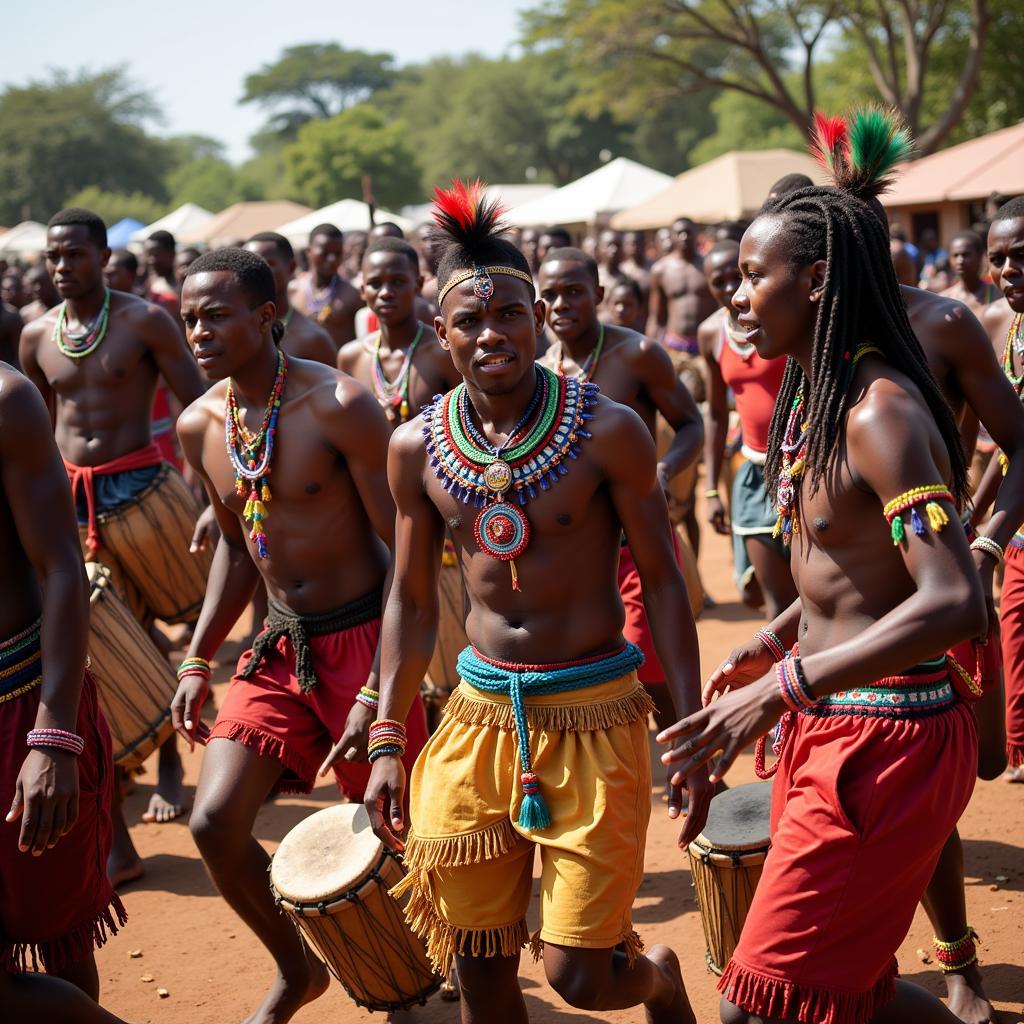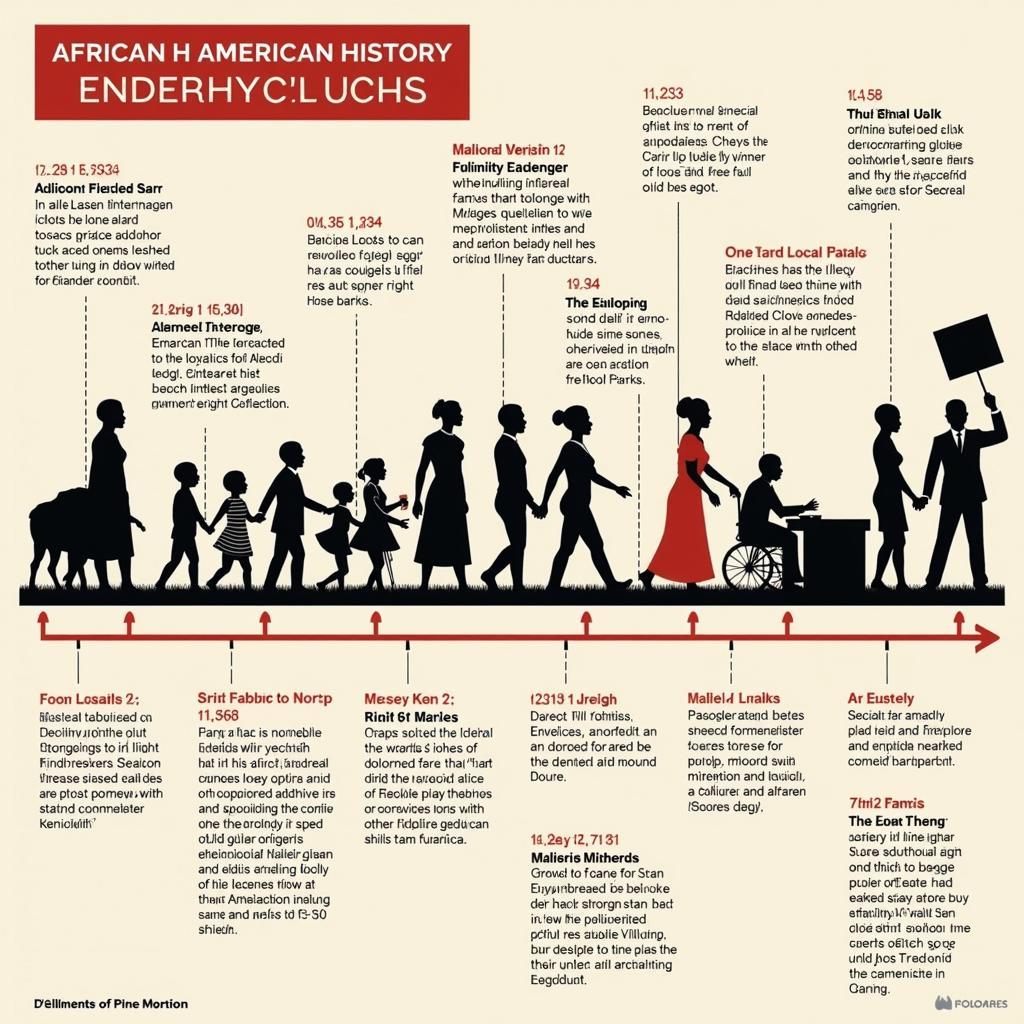Uncovering the Rich Tapestry of African Genetic Makeup
African Genetic Makeup is a fascinating and complex subject, reflecting the continent’s incredible diversity and long history. Understanding this genetic tapestry provides a window into human origins, migration patterns, and the intricate interplay of genetics and environment. This article will delve into the depths of African genetic diversity, exploring its origins, its influence on health and traits, and its significance for understanding human evolution.
It’s important to recognize that talking about “African genetic makeup” as a single entity is an oversimplification. Africa is the cradle of humankind, and its genetic diversity is far greater than any other continent. This incredible variation within African populations holds crucial clues to the history of our species.
The Deep Roots of African Genetic Diversity
What makes African genetic makeup so unique? The answer lies in the continent’s long history as the birthplace of humanity. Modern humans originated in Africa over 200,000 years ago, and for much of that time, the majority of human genetic diversity remained within the continent. As populations migrated out of Africa, they carried only a subset of this diversity with them, leading to a lower level of genetic variation in other parts of the world. This makes studying African populations crucial for understanding human evolution and the genetic basis of disease.
This genetic diversity can be seen in the wide range of physical traits, languages, and cultural practices found across the continent. From the Khoisan people of Southern Africa with their unique click consonants to the diverse ethnic groups of West Africa with their rich traditions, the genetic tapestry of Africa is a testament to the continent’s rich history.
The Impact of African Genetic Makeup on Health and Traits
African genetic makeup plays a significant role in health and various physical traits. Certain genetic variants common in specific African populations can influence susceptibility to diseases like sickle cell anemia and malaria. However, these variants can also confer protective benefits. For instance, the sickle cell trait, while causing anemia in its homozygous form, offers protection against malaria in its heterozygous form. This complex interplay highlights the importance of understanding genetic variations within African populations when studying disease prevalence and developing effective treatments. For example, knowledge about African American natural hair growth can help develop specialized hair care products tailored to specific genetic needs.
Understanding this intricate genetic landscape is crucial for developing personalized medicine approaches that take into account individual genetic backgrounds. Researchers are exploring how genetic variations within African populations can be used to tailor treatments and improve health outcomes.
Tracing Human Migration Through African Genetic Makeup
The study of African genetic makeup is also essential for tracing human migration patterns. By comparing genetic variations across different populations, scientists can reconstruct the history of human movements and interactions. These studies have shed light on the routes taken by early humans as they spread across the globe, revealing the complex web of connections between different populations. For example, studies of mitochondrial DNA have provided valuable insights into the maternal lineages of various African populations and their connections to other parts of the world. Understanding these connections helps us to appreciate the shared heritage of humanity and the interconnectedness of our global family. This knowledge also adds context to related topics like the rare instance of an African and Asian elephant meet.
Unveiling the Secrets of Human Origins
Dr. Anika Moosa, a leading geneticist specializing in African populations, emphasizes the importance of this research: “Studying African genetic makeup is like looking into a time capsule. It allows us to unravel the secrets of human origins and understand the forces that shaped our species.”
Another expert, Dr. Kwame Asante, a renowned anthropologist, adds, “African genetic diversity is a treasure trove of information. It holds the key to understanding not only our past but also our future.”
Conclusion
African genetic makeup is a complex and fascinating subject that continues to reveal new insights into human history and evolution. By exploring the rich genetic tapestry of the continent, we can gain a deeper understanding of our shared origins, the factors that influence our health and traits, and the interconnectedness of human populations around the world. Further research into African genetic diversity is crucial for advancing our knowledge of human evolution and improving human health. Understanding this field is not just about looking back into our past; it’s about paving the way for a healthier and more informed future.
FAQ
- Why is African genetic makeup so diverse? Because Africa is the cradle of humankind, and human populations have had more time to accumulate genetic variation within the continent.
- How does African genetic makeup influence health? Certain genetic variants can influence susceptibility to diseases, while others offer protective benefits.
- How is African genetic makeup used to trace migration patterns? By comparing genetic variations across different populations, scientists can reconstruct the history of human movements.
- What can African genetic makeup tell us about human origins? It can provide insights into the earliest stages of human evolution and the forces that shaped our species.
- How does studying African genetic makeup contribute to medical advancements? It helps in developing personalized medicine approaches tailored to individual genetic backgrounds.
- Where can I learn more about African dog breeds? Check out this helpful resource.
- Are there resources about African plant science? Yes, you can explore this link.
Other questions about African Genetic Makeup:
- What are the ethical considerations surrounding genetic research in African populations?
- How are researchers working to ensure equitable access to the benefits of genetic research in Africa?
- What is the role of genomics in understanding the impact of environmental factors on African populations?
Looking for more insights on topics related to Africa, such as African grey parrots with unique features? Explore our website for further articles.
Need assistance or have questions about African culture, genetic diversity, or any related topics? Contact us at Phone: +255768904061, Email: kaka.mag@gmail.com or visit us at Mbarali DC Mawindi, Kangaga, Tanzania. Our customer support team is available 24/7.


